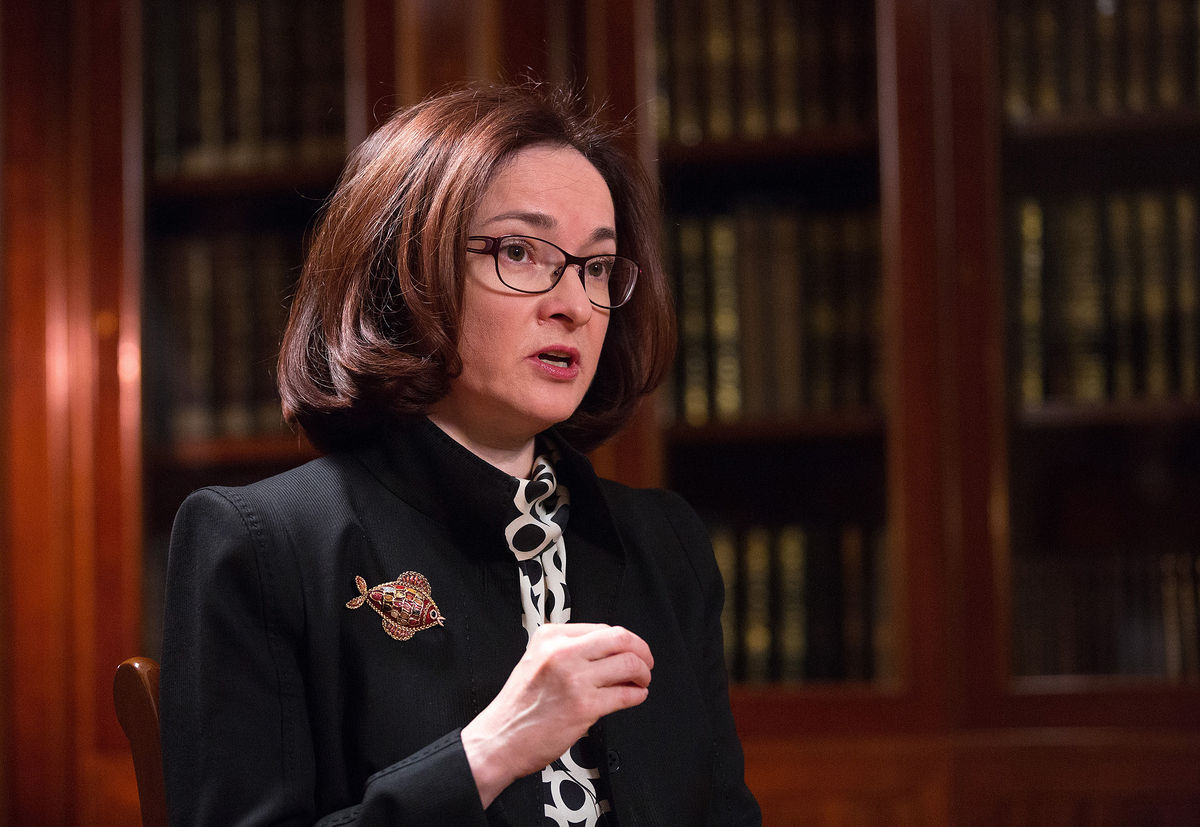Russia lowers key rate to 14% as inflation eases amid slump

By Bloomberg
Russia’s central bank lowered its main interest rate in line with most economist forecasts, as stabilizing inflation clears the path to boosting an economy buckling under low oil prices and sanctions over Ukraine.
The one-week auction rate was cut by one percentage point to 14 percent, the central bank said in a statement on its website Friday. Seventeen of 32 economists in a Bloomberg survey predicted the move, with nine seeing no change and five forecasting a bigger reduction. Another analyst predicted a half-point cut. Policy makers will hold a news conference later in the day.
The Bank of Russia is slowing the pace of decreases after a surprise 2 percentage-point cut at its previous meeting in January as oil prices slipped and inflation in February soared to the fastest since 2002. Even with price growth more than fourfold its mid-term target, the regulator is responding to calls from business to unwind December’s emergency increase to 17 percent to buoy an economy entering its first recession in six years.
“The central bank is clearly determined to unwind the aggressive monetary policy tightening implemented last year when the ruble was in a freefall,” Piotr Matys, a London-based foreign-exchange strategist at Rabobank International, said by e-mail. As long as the ruble is “fairly stable,” the central bank will continue to lower rates by 100-200 basis points every meeting “to ease the burden on the economy and reduce the risk of a severe and potentially prolonged recession.”
Inflation, Ruble
Inflation has more than doubled from the start of last year following a 46 percent drop in the ruble in 2014. The Russian currency swung between gains and losses after the decision and traded little changed at 61.27 against the dollar as of 2:05 p.m. in Moscow.
The ruble’s collapse and Russia’s bans on food imports in retaliation for U.S. and European sanctions over the conflict in Ukraine helped stoke inflation in February to 16.7 percent from a year earlier, compared with 15 percent in January. Even so, it’s started slowing on a weekly basis. Price increases in the weeks ended March 2 and March 10 fell to four-month lows of 0.2 percent.
The Bank of Russia predicts its medium-term inflation target of 4 percent will be reached in 2017. Price growth, which was at 16.7 percent from a year earlier on March 10, is set to peak in the second quarter, the central bank said in the statement.
More Easing
“The current monetary policy and low economic activity will be conducive to the slowing of annual consumer price growth,” it said. “As inflation risks abate, the Bank of Russia will be ready to continue cutting the key rate.”
Higher inflation readings are the result of past factors and the Bank of Russia estimates price growth will decelerate amid economic contraction and shrinking consumer demand, Governor Elvira Nabiullina said in an interview with Bloomberg Television Feb. 9. Price growth may peak at 17 percent to 17.5 percent, according to the Economy Ministry.
“There is no reason for the central bank to focus on current inflation, which will continue to accelerate for some time,” said Dmitry Polevoy, the chief economist for Russia and the Commonwealth of Independent States at ING Groep NV in Moscow, who correctly predicted a rate cut to to 14 percent. “Its policy is traditionally based on inflation expectations.”
Reviving Growth
Pushing ahead with the rate-cut cycle will enable policy makers to focus more on jumpstarting the economy and pulling loan growth from four-year lows. Some banks in Russia have been blocked from global debt markets by sanctions that are hobbling consumer spending and choking investments.
Speaking on a conference call Friday, Herbert Moos, chief financial officer at VTB Group, said the rate cut, while welcome, is “insufficient” to revive lending.
Gross domestic product contracted 1.5 percent in January from a year earlier, according to a preliminary estimate by the Economy Ministry. GDP may shrink as much as 4 percent this year, the central bank said Friday.
“It is a neutral to slightly ruble-friendly decision but it will have almost no major impact on the economy,” Dmitri Barinov, a money manager at Union Investment Privatfonds GmbH in Frankfurt, said by e-mail. “Every cut is positive for banks. It’s a smaller cut probably because inflation surprised on the upside lately and the central bank prefers ruble stability.”
Here we are to serve you with news right now. It does not cost much, but worth your attention.
Choose to support open, independent, quality journalism and subscribe on a monthly basis.
By subscribing to our online newspaper, you can have full digital access to all news, analysis, and much more.
You can also follow AzerNEWS on Twitter @AzerNewsAz or Facebook @AzerNewsNewspaper
Thank you!
